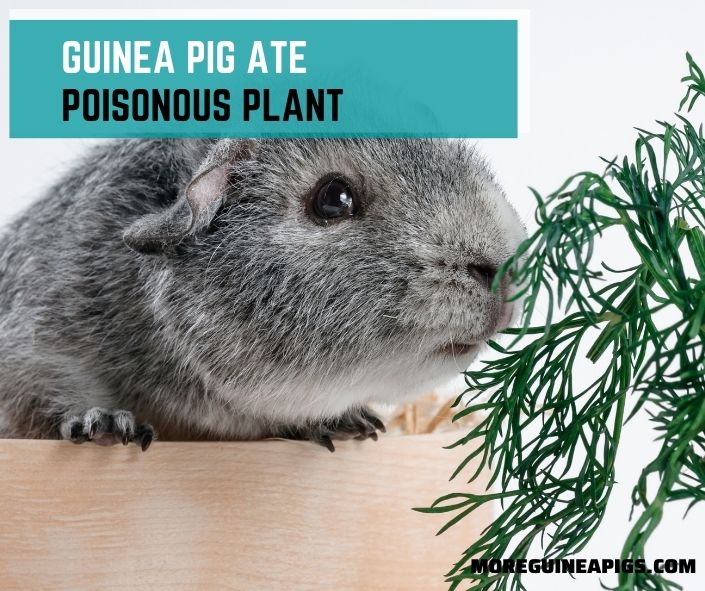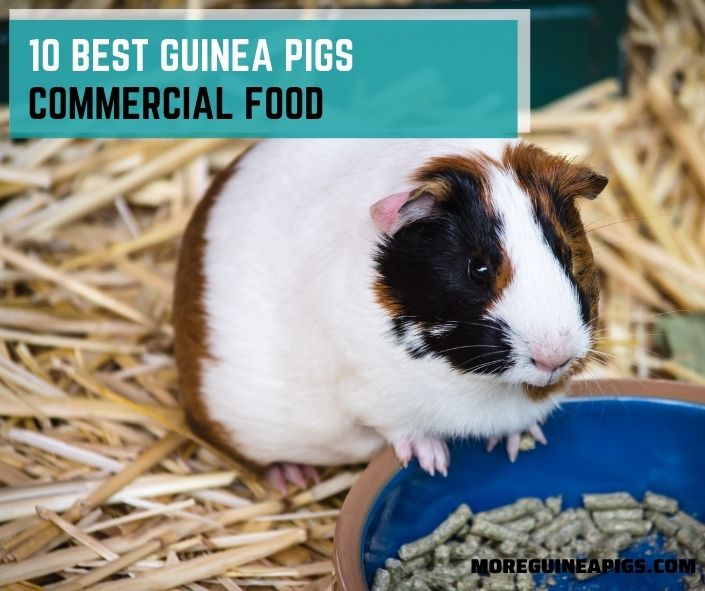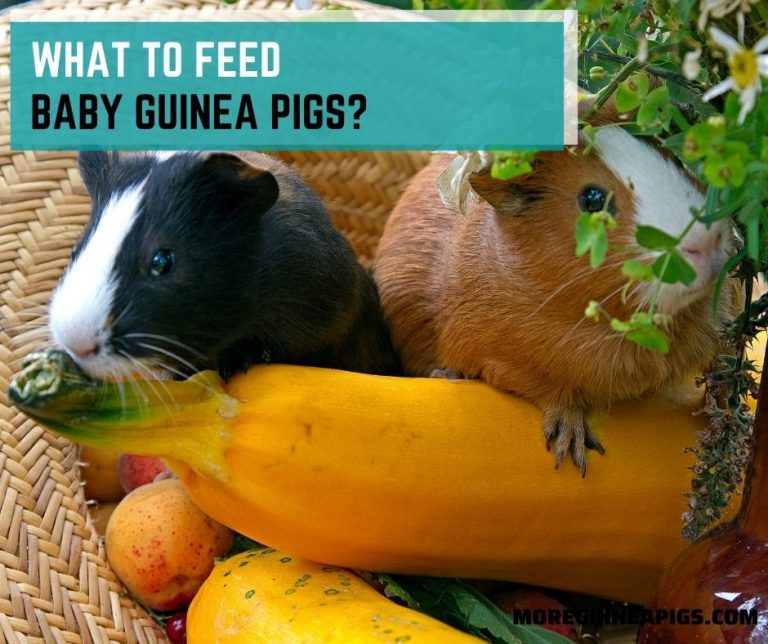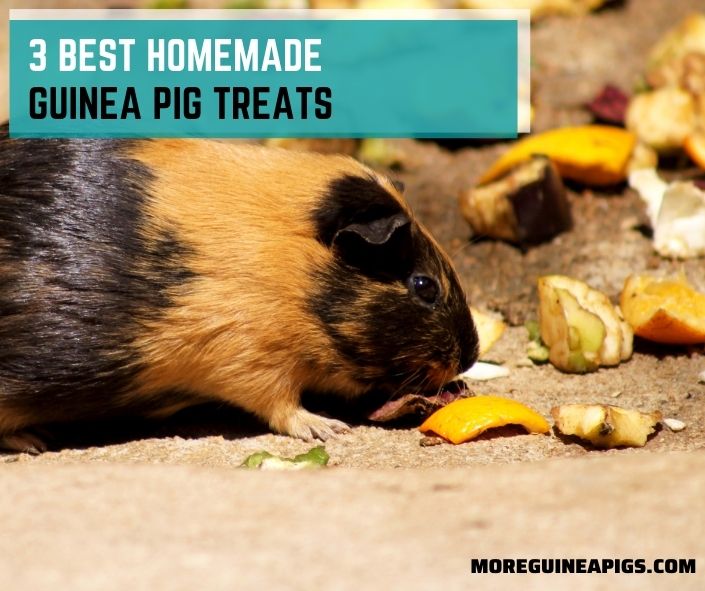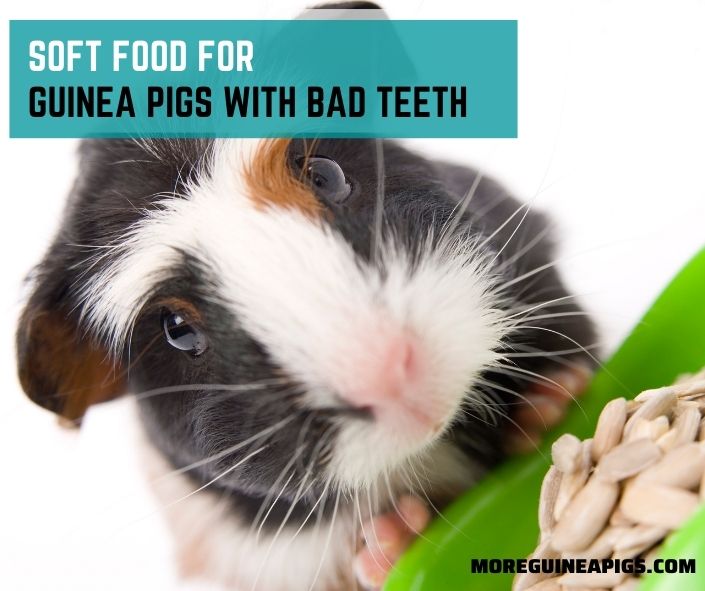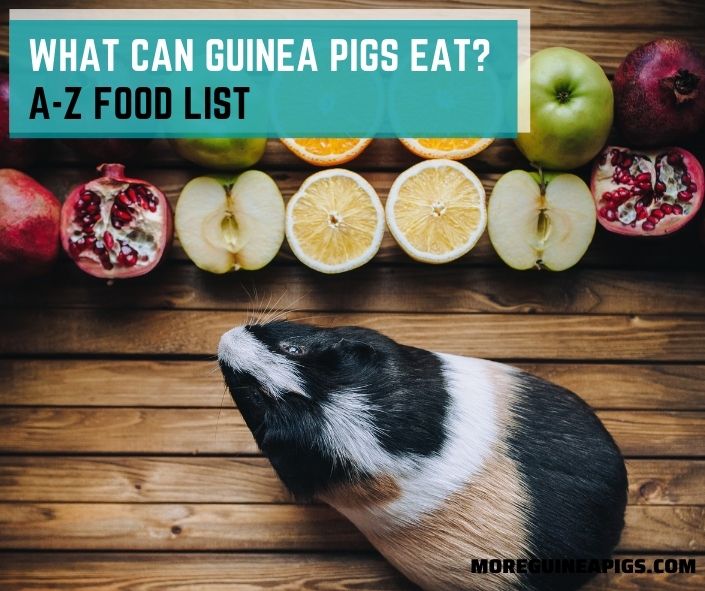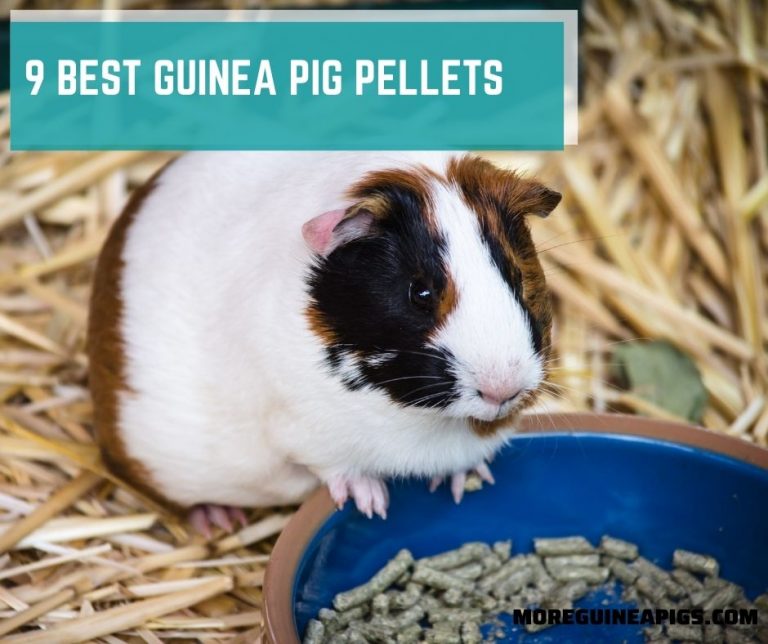Guinea Pig Ate Poisonous Plant: Symptoms and Treatment
Are you worried that your guinea pig might have eaten a poisonous plant? Is it already showing signs of poisoning such as difficulty breathing, excess drooling, or skin issues?
If yes, then you must act quickly. If it is daytime, please call your regular vet right away and if it is at an odd hour at night, call your nearest emergency veterinary hospital.
In this guide, we will tell you the exact symptoms to expect if your guinea pig ate poisonous plant. We will also give you the steps to follow to treat your pet at home and when to see a vet.
What Happens If Guinea Pig Ate Poisonous Plant?
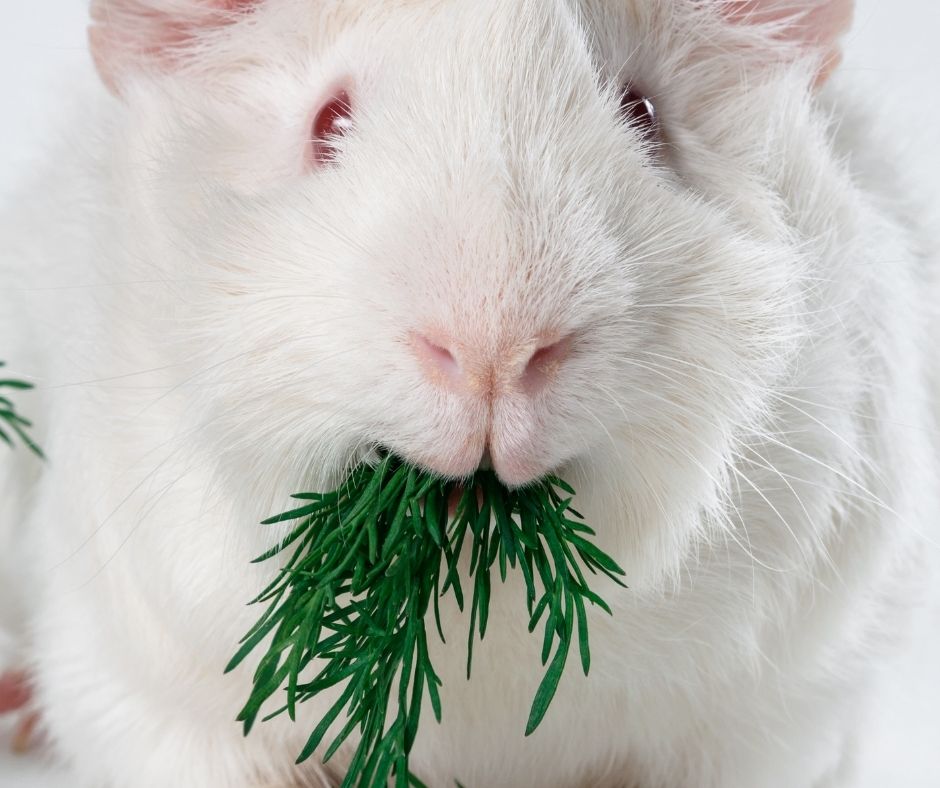
Signs and symptoms of poisoning or toxicity in guinea pigs can vary greatly. These signs depend on the poisonous plant your pet swallowed and also its quantity.
Typical signs of poisoning in guinea pigs are excess salivation or drooling, bloating, restlessness and pacing, weakness or lethargy, redness or swelling in the mouth, and difficulty breathing.
Some guinea pigs may develop skin allergies, some might lose consciousness or faint. In large quantities, the toxin can lead to heart trouble and even death.
Remember: unlike most animals, guinea pigs are unable to vomit. That is why you must see your vet right away to get the poison out of your pet’s system.
Signs of Poisoning In Guinea Pig
A guinea pig that has swallowed a toxic or poisonous plant could show the following signs and symptoms:
- Collapsing or fainting
- Seizures or fits
- Reluctance to eat/not eating at all
- Drooling excessively
- Pacing restlessly
- Drinking and urinating frequently
- Uncoordinated movements while walking
- Abdominal pain – shown by a hunched position
- Increased breathing effort
- Skin allergies
- Heart issues
- Sudden death
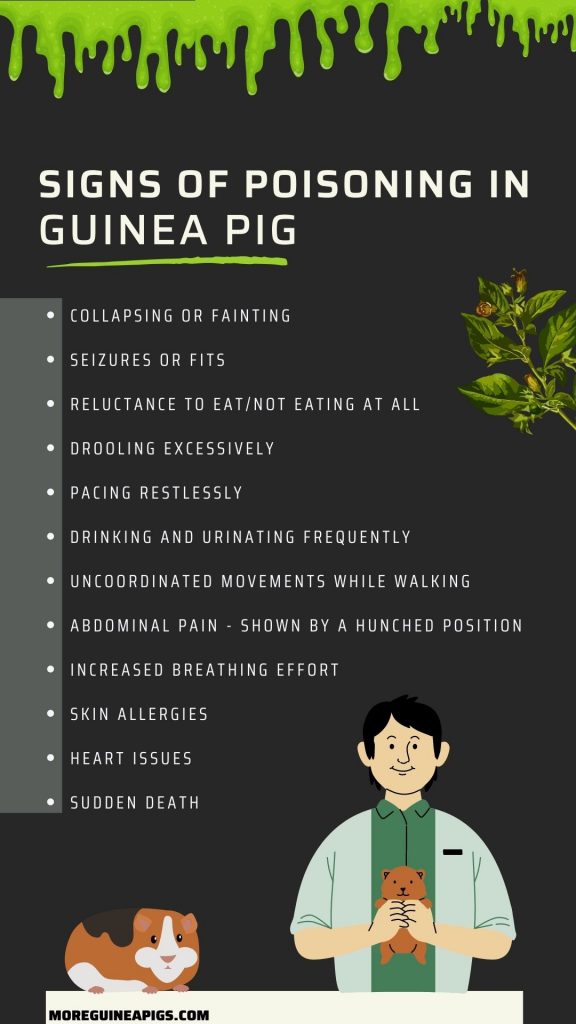
What Should You Do If Guinea Pig Eats A Poisonous Plant?
In mild cases of poisoning, when your guinea pig seems fairly OK, you can monitor it at home. Keep it warm and comfortable but do keep an eye on it. In case it starts to show discomfort or symptoms above, then it is important to take it to the vet.
Here are the steps in detail:
Treating your pet at home
If your guinea pig has only swallowed a small quantity of a poisonous plant, then observe it for a while.
- In most cases, your pet should be fine.
- Make sure to keep it warm.
- Provide it with plenty of water and fresh hay. If needed, hand feed your pet.
- If the above symptoms arise or your pet refuses to eat or seems to be in pain, then take it to the vet right away.
What to expect at the vet?
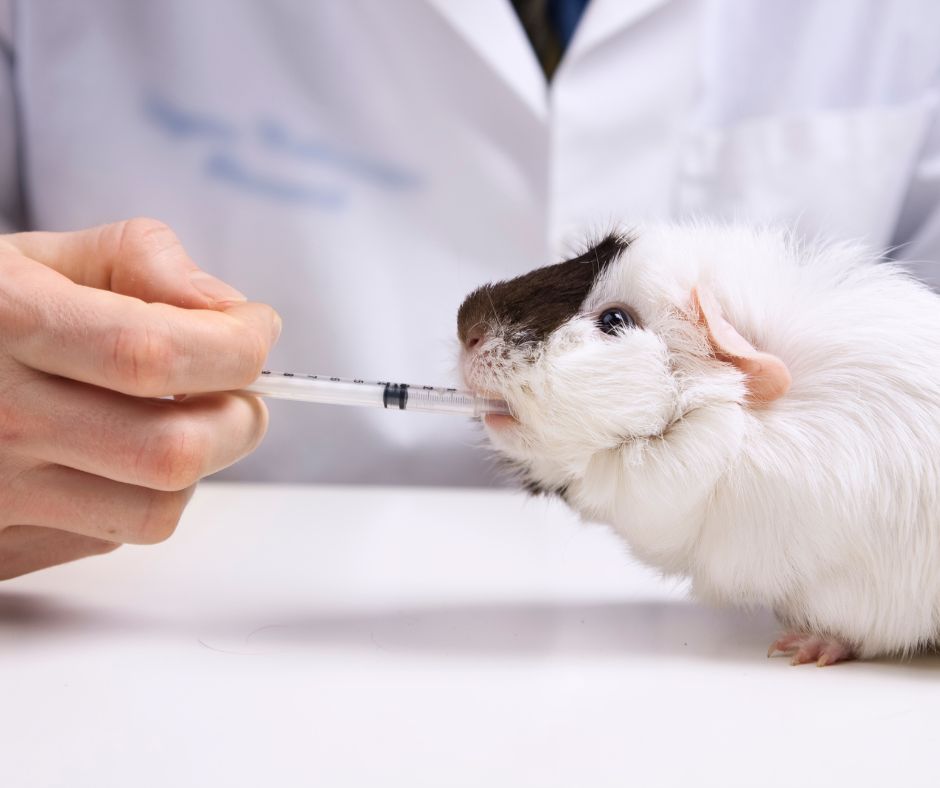
If you have witnessed your guinea pig eating a large quantity of a poisonous plant and it is already displaying one or more of the aforementioned symptoms of poisoning, then it is best to take it to the vet right away.
If possible, take a sample of the plant for the vet to see. That way, s/he won’t have to conduct any diagnostic tests and can begin treatment straight away.
Guinea pigs, like all rodents, cannot vomit, so your vet cannot induce vomiting which is how most dog or cat poisoning cases are treated.
Your vet will want to know how much quantity of the toxic plant your pet ingested and also how long ago. Be prepared with these answers.
Based on your answers, s/he will use one or more of the following methods to remove the toxin from your guinea pig’s system:
- Increased fluid intake – The vet will administer fluids orally or intravenously or even through your guinea pig’s skin. This will help the toxin come out from the urine.
- Administering activated charcoal – this natural substance absorbs toxins from the stomach and throws them out of the body.
- Medication for relieving pain if your pet is in pain.
- Feeding – The vet may also feed your guinea pig using a syringe if it is refusing to eat normally.
Safe and Poisonous Plants for Guinea Pig
It is very important to know which plants are safe and which ones are harmful before feeding them to your guinea pig. Your pet is counting on you to keep it safe and healthy, so it is important to do your homework.
Your vet can guide you about safe plants for guinea pigs. It is best to keep a printed list of the safe and unsafe plants for guinea pigs on your refrigerator, so everyone in your family is also aware of them.
Safe Plants for Guinea Pig
If you insist on foraging wild leaves and plants for your pet, then the following list of safe plants will come in handy:
- Alfalfa in small quantity
- Basil
- Blackberry
- Leaves from beetroot tops
- Leaves from carrot tops (in small quantities only)
- Cleaver
- Plantain
- Cilantro leaves
- Clover – white only (red clover is toxic)
- Chickweed
- Goosegrass
- Goldenrod
- Hazel
- Dandelions (in small quantity as they have a laxative effect)
- Yarrow
- Willow
- Mallow
- Wild Geranium
- Safe garden plants – aster, rose, sunflower, nettles, thistle.
Poisonous Plants for Guinea Pig
Here are some plants to never feed your guinea pig. Keep them out of your pet’s reach:
- Daffodil
- Snowdrop
- Poison ivy
- Jewelweed
- Trumpet creeper
- Stinging nettle
- Giant hogweed
- Bluebell
- Tulip
- Buttercup
- Chrysanthemums
- Fig
- Hemlock
- Holly suckle
- Jasmine
- Juniper
- Lettuce
- Marigold
- Plum leaves
- Poppies
- Tomato leaves
- St. John’s Wort
How To Prevent Guinea Pig Poisoning?
The best way to prevent guinea pig poisoning is to never leave your pet unattended or roaming freely in the house.
You must be extremely cautious and keep all poisonous plants out of reach and far away from your pig’s cage. When you allow your pet to roam freely in the garden, make sure to do so in a safe area that does not have access to the dangerous plants listed above.
Remove Any Toxic Plants from Guinea Pigs Cage
- Only offer fresh grass, hay, and known herbs, fruits, leaves, and vegetables to your pet.
- Make sure there are no plants within your pig’s reach inside its cage and especially when you allow it some free-roaming time in the garden.
- Wash all produce thoroughly before feeding it to your guinea pig.
- Remove all uneaten plants from your pet’s cage immediately. Failure to do so could invite mold on them. Mold is extremely toxic to guinea pigs and can cause issues like bloating, diarrhea, etc.
- Grass clippings are delicious but they also ferment rapidly. So feed them in small quantities only.
Only Feed Safe Plants To Guinea Pig
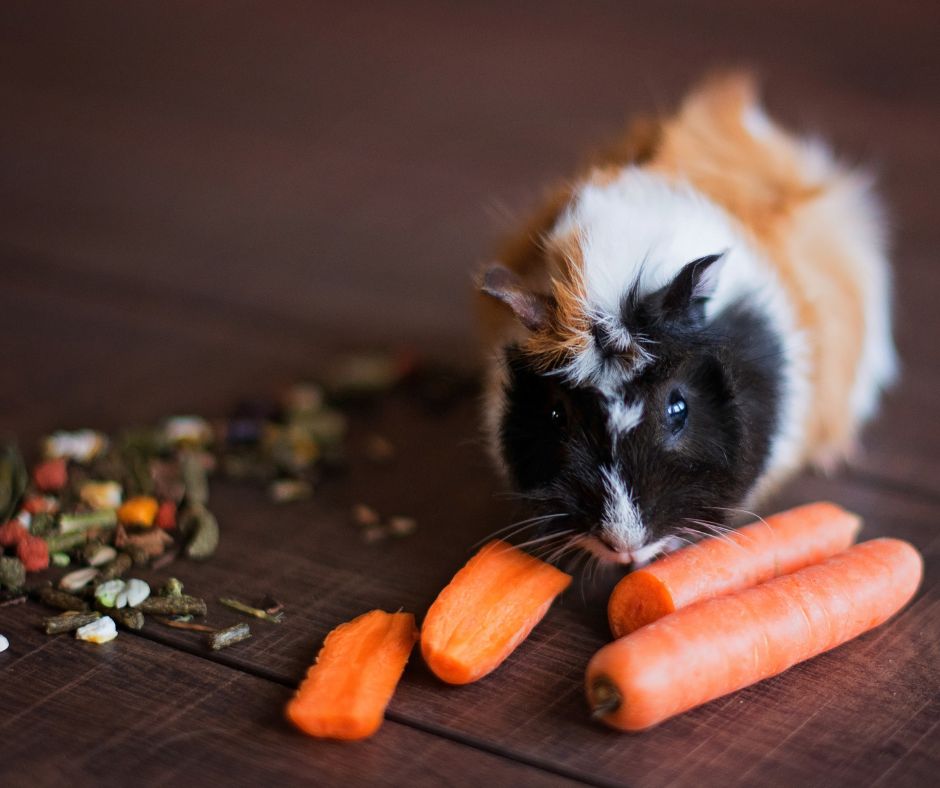
- Always feed known, safe herbs and plants to your guinea pig.
- Make any dietary changes slowly as your pet could develop gastric issues even diarrhea.
- Always feed pesticide-free plants, vegetables, and fruits to your pig.
- Avoid feeding produce or leaves that you have collected from the roadside as they could have pollutants, animal poop, fumes, lead, or other chemical residues on them.
Check out our guide on What to feed a Guinea Pig.
If In Any Doubt as To What Something Is, Don’t Feed It!
- Remember: two plants can resemble each other closely, so if you aren’t 100% sure, it is best not to feed it to your pet.
- Many houseplants can be extremely toxic to your pig, so if you have a garden, keep your pet securely locked away from it.
- The above list of plants safe for guinea pigs is not exhaustive. In case you are unsure of some plant or herb, discuss it with your vet first before feeding it to your pig.
GuineaDad Liner – Midwest Size, Blue | Guinea Pig Fleece Cage Liners
In Short
If your guinea pig has eaten a poisonous plant, it may not always show a reaction. Like all rodents, guinea pigs cannot vomit, but they could develop symptoms like excess drooling, restlessness, difficulty in breathing, etc.
In large quantities, the prognosis might not be good and may even lead to the tiny animal’s death.
It is best to take your guinea pig to the vet straight away if you suspect it has eaten a poisonous plant. The vet can administer the right treatment to save your little pig’s life.
Only feed known plants and herbs to your guinea pig. Prevention is always better than cure. So, when in doubt, avoid feeding an unknown plant or leaves to your buddy.
